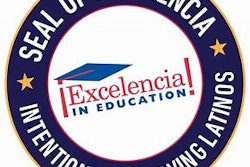WASHINGTON
When it comes to college, paying a lot doesn’t necessarily mean getting a lot, a new Web site reports. WhatWillTheyLearn.com, launched by the American Council of Trustees and Alumni (ACTA), evaluates colleges and universities on their general education curricula and many of the most expensive schools received poor marks for requiring little study in core subjects.
WhatWillTheyLearn.com assigned each institution a grade from “A” to “F” based on how many of the following seven core subjects it requires: composition, mathematics, science, economics, foreign language, literature, and American government or history. ACTA, known as a conservative-leaning higher education accountability organization, formally announced WhatWillTheyLearn.com at a Washington news conference Wednesday. More than 125 schools, educating 20 percent of U.S. undergraduates, are included on the Web site.
ACTA reports that five institutions receiving an “A” charge in-state tuition and fees averaging $5,400 annually. Among the schools that received an “A” are: University of Arkansas, CUNY-Brooklyn College, University of Texas-Austin, Texas A&M University and the Unites States Military Academy. These schools require coursework in six core subjects. However, no institution included on the Web site requires study in seven core subjects.
The 42 institutions that received a “D” or an “F” require two or fewer few core subjects. Among the 11 schools receiving an “F” grade, their average in tuition and fees is $37,700 annually, according to ACTA. Two Ivy League schools, Harvard University and the University of Pennsylvania, each received a “D”.
Anne D. Neal, president of the ACTA, said the core curriculum helps prepare students for life after graduation. Neal noted that some of the students who are not taking the core curriculum classes write poorly and are not prepared for life after college.














